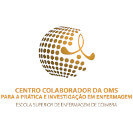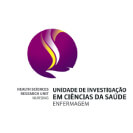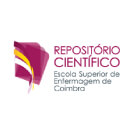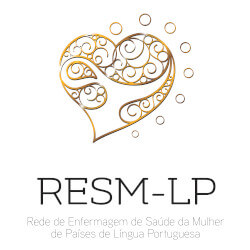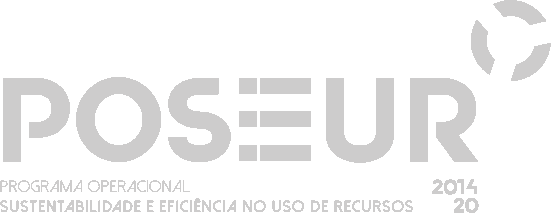The Nursing School of Coimbra (ESEnfC) has underway two major initiatives resulting from its “global development work”: a “new Ph.D. program in Nursing,” in cooperation “with the University of Coimbra (UC)” and “expected” to “start next academic year” (it is currently being assessed by the Agency for Assessment and Accreditation of Higher Education - A3ES); and the establishment, in a consortium also with the UC, of “an interprofessional postgraduate training academy in health".
This information was presented by the President of the ESEnfC, Professor Aida Cruz Mendes, on the ESEnfC Day (17 March), who added that “the qualification of nurses with a Ph.D. in Nursing is crucial for developing the discipline and nurses’ professional autonomy.
The President noted that the ESEnfC, with “80% faculty members with Ph.D. (60% in Nursing),” is above the average of Portuguese schools (63% of the faculty members of Portuguese public Nursing Schools have a Ph.D. and more than 50% have a Ph.D. in Nursing). However, the President highlighted that “this level of qualification must increase to ensure the continuity of the quality of Nursing Education and Research.”
Also, regarding “degree and non-degree postgraduate courses,” the President of the ESEnfC warned that “it is vital that these stop being considered an individual responsibility.”
Professor Aida Cruz Mendes emphasized that “the lack of investment of the health sector in nurses’ specialized and postgraduate training is inexcusable considering the harmful effects it can bring to care quality.” She added that these effects are only minimized “because many nurses, knowing that this training is essential for their development and the quality of their professional practice, do it even without formal and institutional support.”
The problems of learning in clinical settings
The President of the ESEnfC was equally determined regarding undergraduate education. She explained that to “ensure high-quality nursing education,” among other important aspects, “it is crucial to ensure learning conditions in clinical settings, protected by the supervision of nurse specialists exclusively dedicated to this work.” A fact that “is not new” but that, according to Professor Aida Cruz Mendes, “became more visible during the Pandemic.”
The President of the ESEnfC also mentioned the “European Union (EU) directive regulating Nursing Education” to clarify that “it has not accompanied the evolution of post-Bologna education” and that “it is urgent to update it in light of the new realities of teaching” the nursing profession.
The President considered that “the way the conditions for recognizing nursing education are worded is equivocal and outdated, constituting today a barrier to the evolution of nursing education and its quality.” She added that “the School will be available” within its competencies to “contribute to the elaboration of proposals and their rationale” as part of the process of “reviewing the directive [which] is part of an EU governments’ initiative.
(Partially) Replacing reality with simulation
Professor Aida Mendes Cruz also clarified that “reviewing the directive or allowing a non-literal reading of its terms, aligning it with the evolution of Nursing knowledge and education, will promote clinical simulation learning.” This will allow “substituting in a favorable way part of the time allocated to learning in real clinical settings.”
The President noted that “currently, complying with the EU directive requires conducting a substantial part of Nursing education outside the School - about half of the curricular program, in health or community partner units.” She added that “in pandemic situations, such as the one we are experiencing, [this] accentuates Schools’ difficulties in ensuring the quality of teaching conditions in external partnership settings, [as these conditions] often rely on goodwill or personal relationships, instead of institutional ones.”
According to Professor Aida Cruz Mendes, “more and more, this type of learning is reserved for individualized relationships. This forces us to rethink further the organizational model of clinical teachings and their weight in the whole training process, as well as insist on the need to expand and include Nursing Schools’ clinical academic centers”.
The School’s integration into university education
The President of the ESEnfC General Board, Professor Catarina Resende de Oliveira, also mentioned the need to know how to “make the most of” the new perspectives opening up in the health area.” She pointed out “the creation of the Clinical Academic Centre of Coimbra, where there is a favorable environment for creating synergies and increasing the profitability of resources and opportunities regarding the three pillars of teaching, research, and health care, and where” she hopes “the Nursing School of Coimbra will find a place.”
The retired full professor of the Faculty of Medicine of the University of Coimbra added that another “differentiating” perspective for the ESEnfC’s activity would be the “School’s integration into university education” and the creation of conditions for “developing interprofessional learning processes” and “teamwork practices for finding particularly relevant health responses.”
Professor Catarina Resende de Oliveira, chair of the Agency for Clinical Research and Biomedical Innovation (AICIB), also highlighted the importance of “maintaining the quality and ambition to achieve the excellence that the School has demonstrated in students’ education, faculty members’ and researchers’ working conditions and accomplishments, and staff’s satisfaction.”
Beatriz Pinto, President of the ESEnfC Students Association, celebrated the quality of the ESEnfC academic training and wished that “the School, heir to the oldest Portuguese Nursing training institutions,” maintains the “proximity to the student community as a pillar of the institution.”
The ESEnfC Day ceremony also included the traditional tribute to teaching and non-teaching staff completing 25 years of service and recently retired staff and the presentation of the Marta Lima Basto Award for student merit grants. This award is a tribute to the first Portuguese nurse to obtain a Ph.D. degree in 1995.
[2022-03-31]

